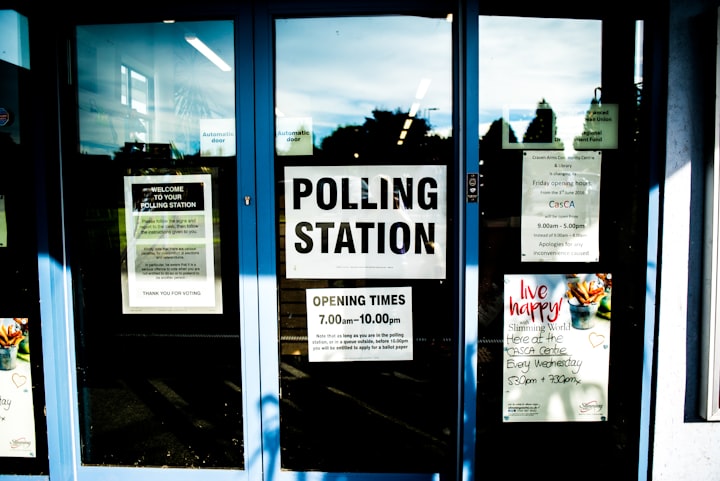What Is Trump Doing In Trying To Cut Payroll Taxes?
Why Stealing From Social Security Is Never A Good Idea

July 23rd, 2020
The news first, and an apology for the photo, it sears me to my soul as well (if the Surgeon General put that picture on tobacco and vaping products, nicotine addiction would nose dive in short order). It was widely reported this morning that after significant resistance from members of his own party, President Donald Trump is dropping the demand for a payroll tax cut to be part of the upcoming corona virus aid bill congressional republicans are working to put together now. To be clear, it was not said that he was dropping the demand altogether but Steven Mnuchin was quoted as saying “it won’t be in the base bill”, when interviewed by CNBC about the payroll tax cut, but he did later say the White House may seek a payroll tax cut in future legislation.

Why Did/ Does Trump Specifically Want A Payroll Tax Cut?
First, a definition, payroll tax in the US is a 15.3% tax on gross employment earnings (up to a cap of about $130,000 in earnings), typically half is paid by the employee, 7.65% of gross earnings, (shown on a paystub as FICA and MEDFICA) and the other half is paid by the employer, also 7.65% of the employees gross earnings, (self-employed individuals pay the full 15.3% themselves). Payroll tax directly funds Medicare and Social Security (Social Security tax is set at 12.4% of gross earnings and Medicare tax is the remaining 2.9% of gross to make the total 15.3), and is one of the few cases in taxation designed specifically for individual tax payers to get more back than they pay in (interest is earned on both funds and both funds are essentially government administered savings programs for future expenses when workers retire). Though the specific details of the payroll tax cut President Trump originally demanded in order to sign a bill were never fully spelled out in terms of duration, it has been stated that Trump wanted a full payroll tax holiday and for it to last through to the end of recovery, which many economists now think may last a couple years.
In general budgetary terms, a payroll tax holiday would not spike the deficit or national debt (something Trump is battling in an election year, having added $5.3 Trillion to the National Debt before COVID-19 relief even started and before government revenues were impacted by it, estimates after COVID-19 measures put that number closer to $8.3 Trillion, with that number increasing). What the payroll tax holiday would do is add 7.65 percent of the wages (excluding benefits) companies pay employees to their profitability. It would also boost the paychecks of those with employers by 7.65% of gross (again, on wages up to the approximately $130,000 cap), 15.2% for self-employed individuals. Being a percentage based tax, higher earning individuals will see a greater dollar amount increase in paychecks than lower wage workers and those who do not earn a wage will see no benefit. In an election year, the 7.65 percent increase in paychecks could be touted by President Trump in debates and campaign ads, and big business would likely see a boost in profitability, potentially boosting the stock market temporarily, despite small businesses being the hardest hit by corona virus.

Doesn't That Make A Payroll Tax Holiday A Good Thing?
First, trying to use a payroll tax holiday to help with a recovery has been shown in past efforts to have little to no positive impact on recovery efforts. Secondly, a payroll tax holiday at this point is likely more about votes and helping out big business than it is about recovery. Not having to pay payroll tax for employers will likely be used to pad their profitability and is not typically used to bring on new employees or increase employee pay in any way, as payroll tax holidays are temporary in nature. For employees, a full payroll tax holiday not only means that they are not putting 7.65 percent of their income into the Social Security and Medicare funds, decreasing their long term solvency, but it also means that their employers will not be paying in to those funds either, effectively serving as a loss in income.
As the Medicare fund dwindles, new rules about coverages and exclusions are put in place, Medicare hospital compensation rates decrease, increasing baseline costs for procedures for everyone else in the US health system, and costing seniors more out of pocket and more for part B coverage. Medicare is of greater importance to lower net worth seniors as they do not have the savings to afford higher part B costs or non-covered treatments. If the Social Security fund is deprived of funds for an extended period of time, we will likely see permeant changes to social security retirement age and payment schedules on the other side of a future recovery (Social Security makes up a much higher percentage of lower income Americans' retirement income).
Also important to note, despite intentions put forward at the beginning of a payroll tax holiday, there are real and true forces in government which want to see the amount employers pay for payroll tax permanently reduced or eliminated. There are even some quiet movements surrounding Medicare and Social Security funding reductions, or eliminating them altogether. If a year long, or couple year long, full payroll tax holiday were put in place, collecting payroll tax again would look like a tax increase to all the folks that got used to payroll tax not being deducted. It could be enough to significantly impact lower income workers and make it difficult for them to balance monthly budgets that they had become accustomed to. For self-employed individuals, especially those who became self employed during the payroll tax holiday, a new 15.3% tax requirement could be enough to disincentivize self employment, which is the foundation for many small businesses. For businesses, used to higher profitability, they might put pressure on or raise concerns about those profits going away to their congressperson. Does that mean a temporary payroll tax holiday could be a trojan horse to ending Social Security and Medicare? It is unlikely, but the backlash over the return of payroll tax could result in a phased in resumption of payroll taxes which would have an additional effect on Social Security and Medicare funds and increase the potential of both programs seeing benefits reduced or rules for enrollment changed, raising retirement age even higher or reducing payments for future retirees or even reducing annual increases for current retirees.

Did This All Get A Little Scary?
If you are not an owner of a decently sized business or a higher income worker, this should all be a little scary. Medicare and Social Security factor in significantly to retirement plans for most lower income Americans, still playing a role in the retirements of higher wage workers. Playing around with their funding is likely to effect payouts in the future or effect the longevity and health of the 2 programs. A temporary reduction in taxes is always a little bit enticing when trying to stimulate the economy, or for workers looking to make ends meet during tough times, but a full payroll tax holiday would likely result in much more significant consequences than any benefit they would offer.
About the Creator
Michael Hanson-Metayer
A restless soul, typically caught in between 2 divergent things. Sometimes freelance writer, occasional photographer, wide eyed observer of humanity, often a chronicler of recent and contemporary events, and frequent storyteller.






Comments
There are no comments for this story
Be the first to respond and start the conversation.